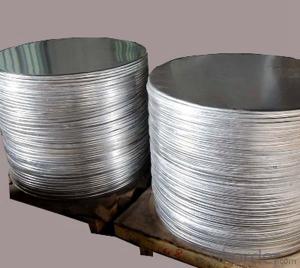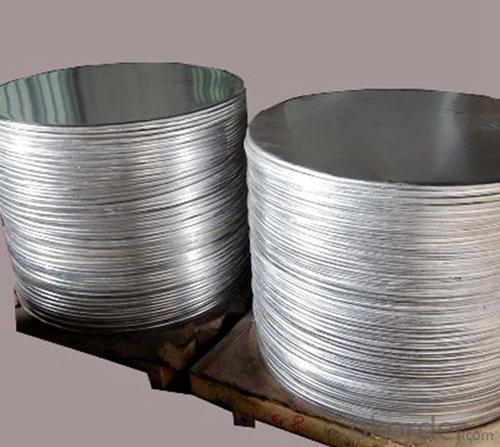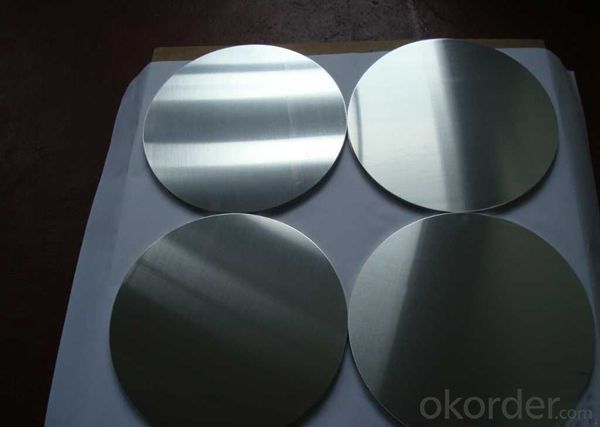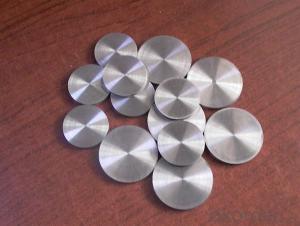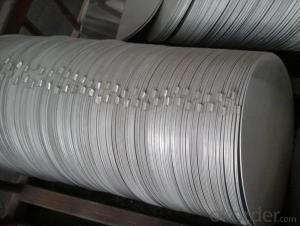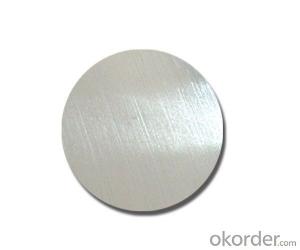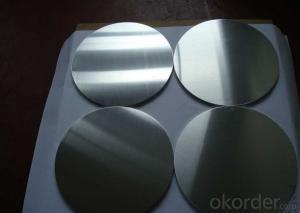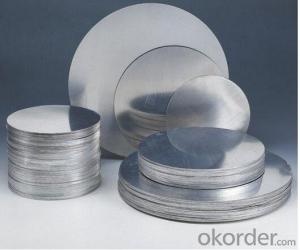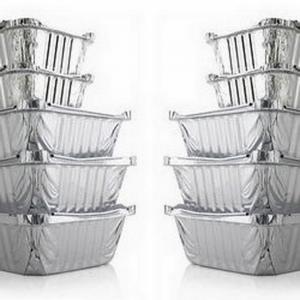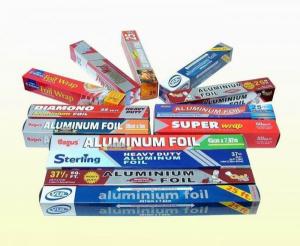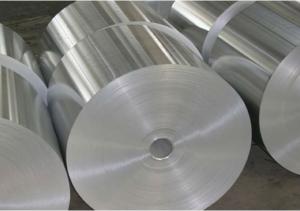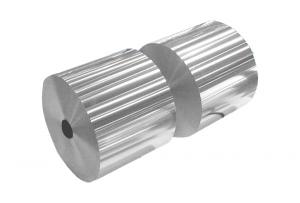Aluminum Hot Rolled Pressure Pan Aluminum Circles Prices
- Loading Port:
- Shanghai
- Payment Terms:
- TT OR LC
- Min Order Qty:
- 5 m.t.
- Supply Capability:
- 10000 m.t./month
OKorder Service Pledge
OKorder Financial Service
You Might Also Like
Specification
1.Structure of Aluminum Circles Prices for Pressure Pan Hot Rolled Description
• Product: Aluminim Circle
• Application: It is used in cookware, engineering, lighting purpose, fried pans, non-sticky pans, cooking pots, kettles, hard anodize cook wire, pressure cooker and house hold utensils, reflector of the light, etc
• Advantage: Deep drawing and hard anodizing quality Aluminum Circle Sheet can be supplied. Our Aluminum Circle is RoHS and REACH compliance and uses well-protected packing. Our circles are excellent material for producing cookware, utensil, pots, pans and kettles.
2.Main Features of the Aluminum Circles Prices for Pressure Pan Hot Rolled
• High manufacturing accuracy
• Smooth surface
• No waves
• High strength of extension and yield
• Well packaged
3.Aluminum Circles Prices for Pressure Pan Hot Rolled Images
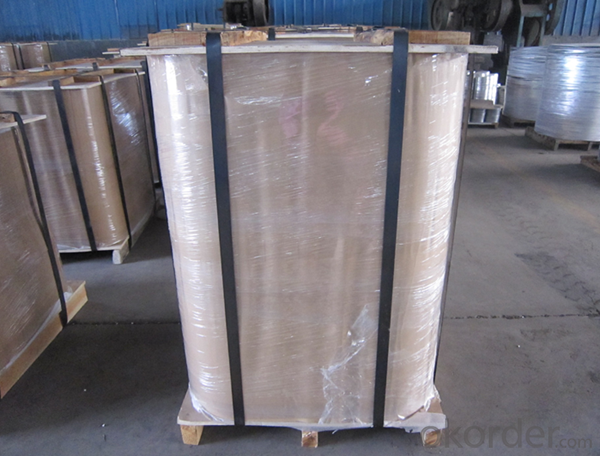
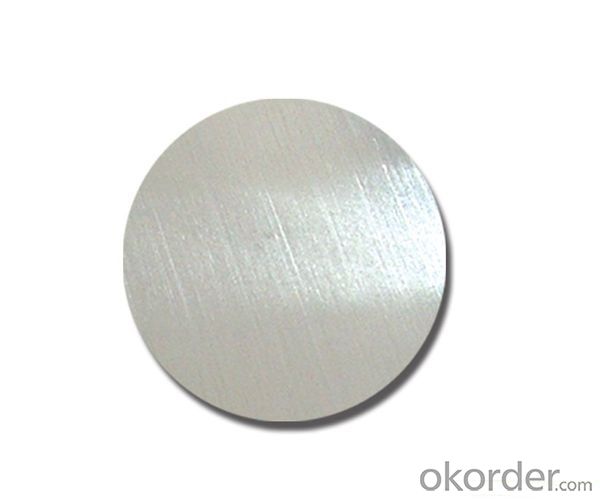
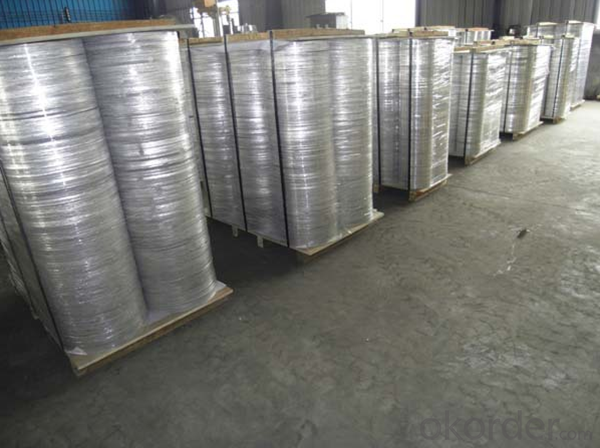
4.Aluminum Circles Prices for Pressure Pan Hot Rolled Specification
Alloy | AA1050,AA1060,AA1100 AA3003etc. |
Temper | O,H14 |
Thickness | 0.5MM-4MM |
Diagonal | 100-1200MM |
Standard | GB/T 3880-2006 |
5.FAQ of Aluminum Circles Prices for Pressure Pan Hot Rolled
We have organized several common questions for our clients,may help you sincerely:
① How about your company?
A world class manufacturer & supplier of aluminum coil and alloy blanks. Aluminum production base is comprised of 18 aluminum annealers, 10 coil and foil mills, 4 continuous production lines, 2 hot rolling production line and 3 prepainted lines.
Export 5000 tons per month to Asia, America and Middle East. Always do the best for our clients.
②Can you guarantee the quality of the products?
We are responsible for the quality of materials to get a long-term cooperation with clients in a reasonable period of time and we are glad to arrange and coordinate any third party inspection for you.
③What is the delivery time after purchase?
35 day after receiving client’s deposit or correct LC
- Q: Is it possible to utilize recycled aluminum for the production of jewelry and fashion accessories?
- <p>Yes, recycled aluminum can be used to make jewelry and other fashion accessories. Recycled aluminum is a sustainable and cost-effective alternative to new aluminum, and it maintains the same properties as newly mined aluminum. It is lightweight, durable, and can be easily molded into various shapes and designs. Many fashion designers and jewelers are increasingly using recycled aluminum to create unique and eco-friendly products, reducing the environmental impact of their creations.</p>
- Q: Explain the distinction between aluminum as a pure element and its alloys.
- <p>Aluminum is a lightweight, silvery-white metal found in the Earth's crust. It is a pure element with the symbol Al and atomic number 13. Aluminum alloys, on the other hand, are mixtures of aluminum with other elements such as copper, magnesium, manganese, and silicon. These alloys are created to enhance certain properties like strength, durability, and resistance to corrosion. While pure aluminum is soft and malleable, its alloys are stronger and more versatile, making them suitable for a wide range of applications from aerospace to construction.</p>
- Q: What are the various applications of aluminum oxide in different industries and daily life?
- <p>Aluminum oxide, also known as alumina, has a wide range of applications due to its hardness and other properties. It is used as an abrasive in products like sandpaper and grinding wheels. In the electronics industry, it serves as a substrate for semiconductor devices. It's also a key component in the production of aluminum metal through the Hall-H茅roult process. In the medical field, aluminum oxide is used in dental materials and as an antiperspirant. Additionally, it's found in cosmetics, ceramics, and as a catalyst in various chemical processes.</p>
- Q: Describe the process of electrolysis used in aluminum production.
- <p>The process of electrolysis for aluminum production involves the Hall-H茅roult process, which is the primary method for extracting aluminum from its ore, bauxite. First, bauxite is refined to produce aluminum oxide (alumina). This alumina is then dissolved in a molten cryolite bath, which lowers the melting point and increases the electrical conductivity. Large amounts of electricity are passed through the bath, causing the alumina to decompose into aluminum metal and oxygen gas. The aluminum collects at the bottom of the cell and is periodically tapped off, while the oxygen is released into the atmosphere. This energy-intensive process is crucial for the aluminum industry, as it allows for the production of large quantities of aluminum, a key material in various industries.</p>
- Q: What are the typical applications for aluminum sheet metal?
- <p>Aluminum sheets are versatile and have numerous applications due to their lightweight, corrosion resistance, and strength. Some common uses include construction for roofing and siding, automotive parts such as body panels and heat sinks, packaging for food and beverages, aerospace for aircraft components, and in the manufacturing of electronic devices due to its good thermal conductivity. They are also used in signage, furniture, and various decorative applications.</p>
- Q: What are the environmental impacts of aluminum production and use?
- <p>Aluminum has significant environmental impacts, primarily due to its production process. The extraction of bauxite ore, the main source of aluminum, involves deforestation and habitat destruction. The refining process releases greenhouse gases, particularly carbon dioxide, contributing to climate change. Additionally, aluminum production generates toxic byproducts like red mud, which can contaminate water and soil. Despite these issues, aluminum is also recyclable, and its lightweight nature can reduce energy consumption in transportation, mitigating some environmental impacts. However, improper disposal of aluminum waste can still lead to pollution.</p>
- Q: Is it safe and effective to use aluminum foil for wrapping food items in a refrigerator or freezer?
- <p>Yes, you can use aluminum foil to wrap food in a refrigerator or freezer. Aluminum foil is a good insulator and can help keep food fresh by preventing freezer burn and moisture loss. It also protects food from absorbing odors. However, it's important to ensure the foil is tightly wrapped around the food to maintain its effectiveness. Additionally, avoid using aluminum foil with acidic foods as it can react with them, potentially causing a metallic taste.</p>
- Q: This question asks for methods to prevent the corrosion of pure aluminum when exposed to environmental factors.
- <p>To prevent corrosion of pure aluminum in the environment, one can apply protective coatings such as paints or anodizing, which forms a dense oxide layer on the surface. Additionally, using aluminum alloys that contain elements like copper, magnesium, and silicon can enhance resistance to corrosion. Regular cleaning and maintenance to remove contaminants that may initiate corrosion are also important. In extreme environments, cathodic protection or the use of inhibitors can be employed to further protect aluminum from corrosion.</p>
- Q: This question asks for the specific temperature at which pure aluminum transitions from solid to liquid state.
- <p>The melting point of pure aluminum is approximately 660.32 degrees Celsius (1220.58 degrees Fahrenheit). This is the temperature at which aluminum changes from a solid to a liquid state under standard atmospheric pressure. The melting point is an important physical property of metals and is crucial in various industrial applications, such as casting and welding.</p>
- Q: Exploring the possibility of using materials that are more eco-friendly than aluminum.
- <p>Yes, various alternative materials can be used that are more environmentally friendly than aluminum. These include biodegradable plastics, recycled materials, and natural fibers such as bamboo and hemp. For instance, bioplastics can be derived from renewable sources like corn starch or sugarcane, reducing the carbon footprint. Recycled materials not only reduce waste but also save energy compared to producing new materials. Natural fibers are sustainable and can be used in construction, packaging, and other applications traditionally served by aluminum. However, it's crucial to consider the specific application's requirements and the lifecycle impact of these alternatives.</p>
Send your message to us
Aluminum Hot Rolled Pressure Pan Aluminum Circles Prices
- Loading Port:
- Shanghai
- Payment Terms:
- TT OR LC
- Min Order Qty:
- 5 m.t.
- Supply Capability:
- 10000 m.t./month
OKorder Service Pledge
OKorder Financial Service
Similar products
Hot products
Hot Searches
Related keywords
